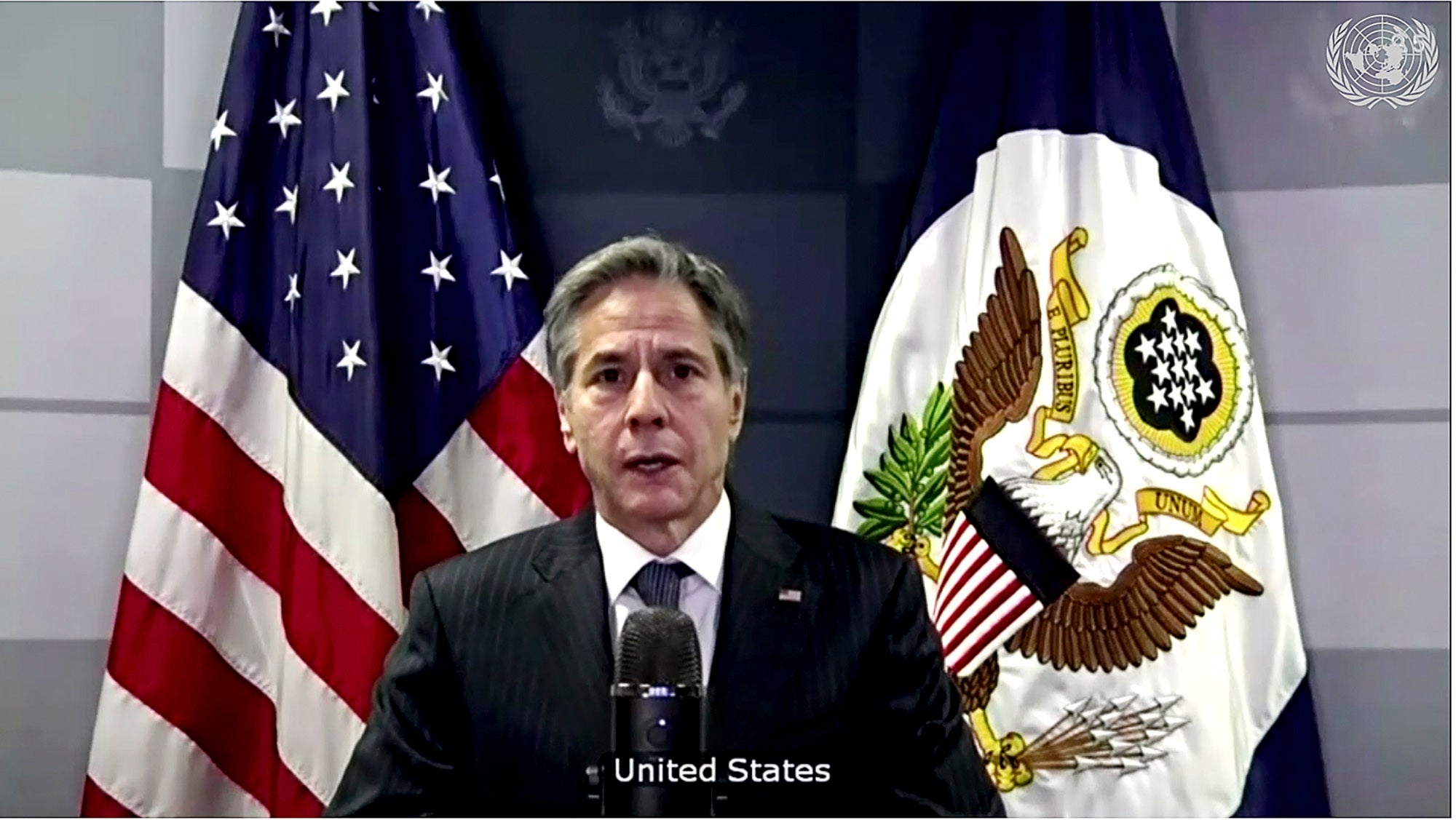US, Europeans urge Iran to keep allowing nuclear inspections
Top European and U.S. officials have urged Iran to keep allowing international nuclear inspections to salvage a 2015 deal between Tehran and world powers

Your support helps us to tell the story
From reproductive rights to climate change to Big Tech, The Independent is on the ground when the story is developing. Whether it's investigating the financials of Elon Musk's pro-Trump PAC or producing our latest documentary, 'The A Word', which shines a light on the American women fighting for reproductive rights, we know how important it is to parse out the facts from the messaging.
At such a critical moment in US history, we need reporters on the ground. Your donation allows us to keep sending journalists to speak to both sides of the story.
The Independent is trusted by Americans across the entire political spectrum. And unlike many other quality news outlets, we choose not to lock Americans out of our reporting and analysis with paywalls. We believe quality journalism should be available to everyone, paid for by those who can afford it.
Your support makes all the difference.Top European and U.S. officials urged Iran on Thursday to allow continued United Nations nuclear inspections and stop nuclear activities that have no credible civilian use.
The foreign ministers of Britain, Germany and France and U.S. Secretary of State Antony Blinken warned that Iran's actions could threaten delicate efforts to bring the U.S. back into a 2015 deal between Tehran and world powers and end sanctions damaging Iran's economy.
Iran is “playing with fire,” said German Foreign Minister Heiko Maas, who took part in talks Thursday in Paris with his British and French counterparts. Blinken joined via videoconference.
Iran has said it will stop part of International Atomic Energy Agency inspections of its nuclear facilities next week if the West doesn’t implement its own commitments under the 2015 deal. The accord has been unraveling since Donald Trump pulled the U.S. out of the agreement in 2018.
Blinken reiterated that “if Iran comes back into strict compliance with its commitments ... the United States will do the same,” according to a joint statement after Thursday's meeting that reflected closer trans-Atlantic positions on Iran since President Joe Biden took office.
The diplomats noted “the dangerous nature of a decision to limit IAEA access, and urge Iran to consider the consequences of such grave action, particularly at this time of renewed diplomatic opportunity.”
They said Iran’s decision to produce uranium enriched up to 20% and uranium metal has “no credible” civilian use.
The 2015 accord is aimed at preventing Iran from developing nuclear weapons. Tehran denies it is seeking such an arsenal.
“We are the ones who have kept this agreement alive in recent years, and now it’s about supporting the United States in taking the road back into the agreement,” Maas told reporters in Paris.
“The measures that have been taken in Tehran and may be taken in the coming days are anything but helpful. They endanger the Americans’ path back into this agreement. The more pressure that is exerted, the more politically difficult it will be to find a solution,” he said.
Iran’s threats are “very worrying," British Foreign Secretary Dominic Raab said, stressing the need "to re-engage diplomatically in order to restrain Iran, but also bring it back into compliance.”
The diplomats also expressed concern about human rights violations in Iran and its ballistic missile program.
In Iran, Rouhani expressed hope Thursday that the Biden administration will rejoin the accord and lift the U.S. sanctions that Washington re-imposed under Trump, according to state television.
Tehran has been using its violations of the nuclear deal to put pressure on the remaining signatories — France, Germany, Britain, Russia and China — to provide more incentives to Iran to offset crippling sanctions the Trump administration re-imposed after pulling out of the 2015 deal.
German Chancellor Angela Merkel and the president of the European Council spoke with Iranian President Hassan Rouhani this week to try to end the diplomatic standoff. The head of the IAEA is scheduled to travel to Iran this weekend to find a solution that allows the agency to continue inspections.
___
Geir Moulson in Berlin, Matt Lee in Washington and Masha Macpherson in Paris contributed.